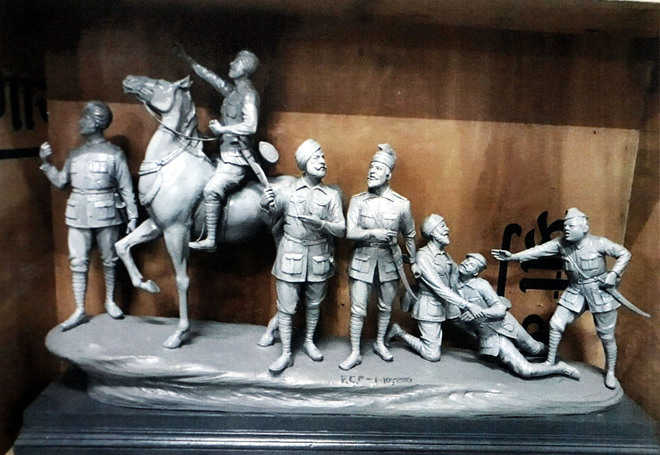Rachna Khaira
Tribune News Service
Jalandhar, January 31
It was a routine visit by France-based NRI Ramesh Chander Vohra (69) of Chandigarh to the war memorial at Neuve Chapelle a few years ago, when he came to know about the historic contribution of the Sikh soldiers, who lost their lives on the Western Front during the World War I and have no known graves.
He was equally disappointed to learn that not much was written about the contribution of these unsung heroes many of whom were not even identified till date. From there began his journey to visit over 83 cemeteries all across France to identify the graves of over 5,000 soldiers.
Speaking to The Tribune during his visit to Jalandhar, Vohra said a majority of these soldiers were Sikhs. “It was a matter of pride when I was told by many people that their ancestors used to respect the Indian soldiers a lot because they fought against Germany under extreme conditions,” said Vohra, adding that some of them had even fought barefoot for many days.
Vohra, president of the Interfaith Shaheedi Association (IFSC), is now in the process to install a statue of Indian soldiers adjacent to the Indian monument of Neuve-Chapelle on the centurion anniversary of the Armistice Day on November 11.
The brass statue, measuring 12 m by 3.8 m and weighing 11 tonne, is being made at an estimated cost of Rs 1.5 crore in Haridwar. Vohra has also written a book “Unsung Indian Heroes of World War-I’ narrating his journey to over 80 cemeteries to locate the unidentified Indian soldiers.
Neuve-Chapelle battle
The British Government had declared a war on Germany on August 4, 1914. Units of the Indian Expeditionary Force began arriving in France in September and by late October, they were involved in heavy fighting
on the Messines Ridge in Belgium. The Indian Corps, comprising 3rd (Lahore) and 7th (Meerut) divisions, fought in some of the bloodiest battles in the first year of the war. At Neuve Chapelle, from March 10-13, 1915, Indian soldiers made up
half of the attacking force and despite suffering heavy casualties, succeeded in capturing important sections of the German line.
It was reported that over 4,500 Indian soldiers, a majority of them Sikhs, got killed in a single night here.
Unlock Exclusive Insights with The Tribune Premium
Take your experience further with Premium access.
Thought-provoking Opinions, Expert Analysis, In-depth Insights and other Member Only Benefits
Already a Member? Sign In Now










